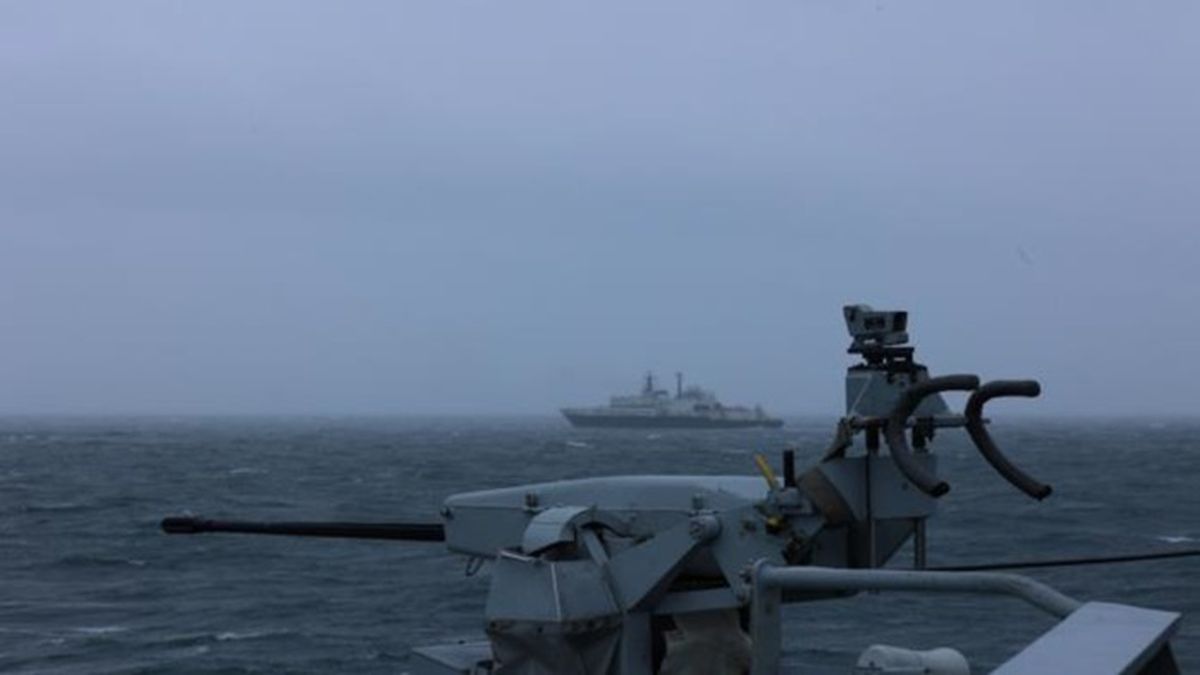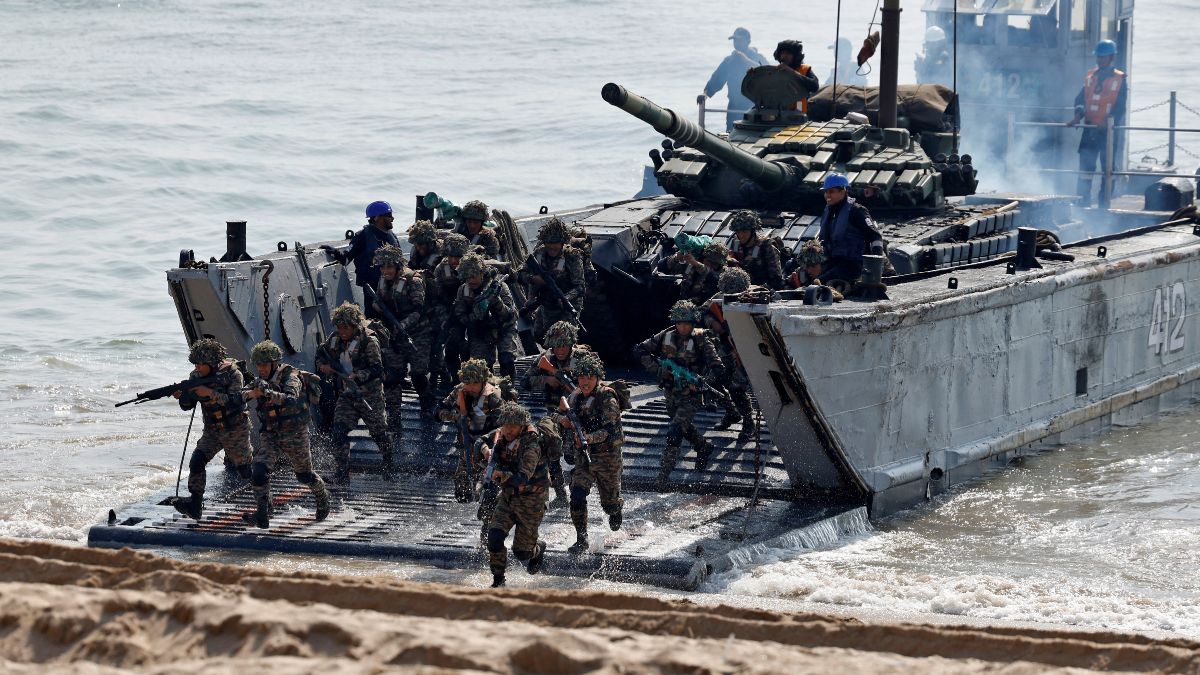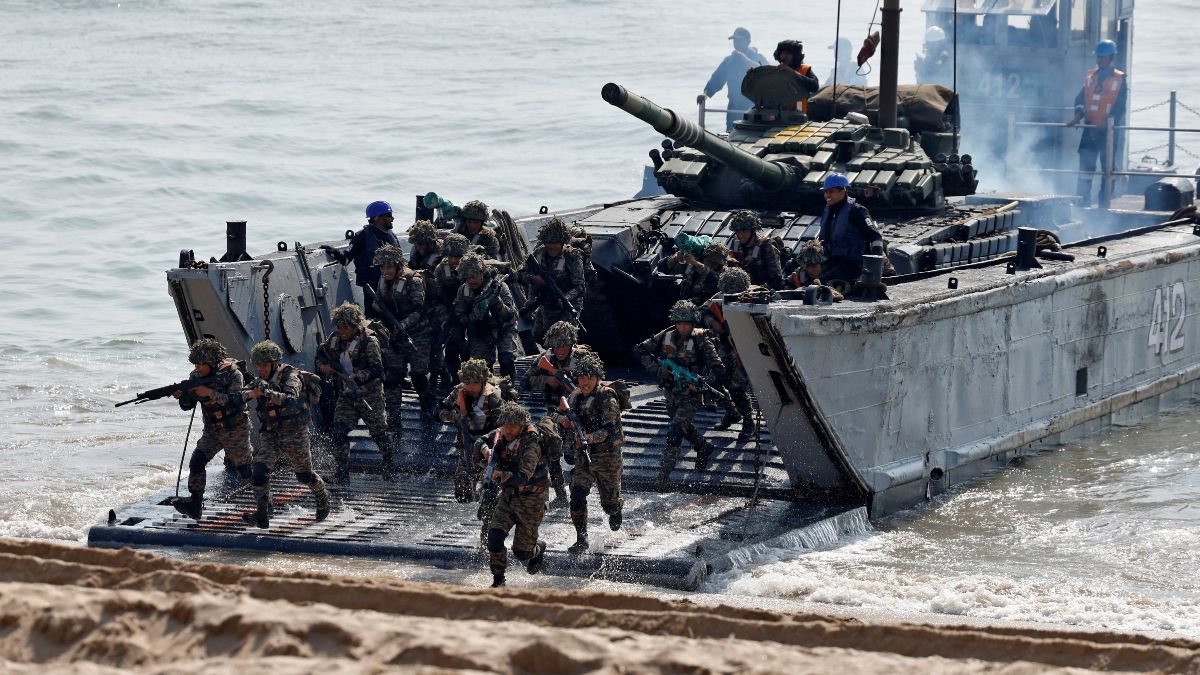Are the Russia-United Kingdom ties heading for choppier waters? On Wednesday (November 19), the United Kingdom claimed that Yantar, a Russian ship that has long been accused of secretly mapping out Britain’s undersea cables, had entered British waters, and in its latest escalation started directing lasers at British military pilots who were monitoring them.
Responding to the news, Britain’s Defence Secretary John Healey said, “That Russian action is deeply dangerous. My message to Russia and to (President Vladimir) Putin is this: ‘We see you, we know what you’re doing, and if the Yantar travels south this week, we are ready’.”
As tensions rise over the presence of this vessel, we take a closer look at what is the Yantar vessel – and what is it doing near British territory?
Yantar — Russia’s ‘research vessel’
Russia has claimed that the Yantar is a research or survey ship. However, defence experts note that it’s instead a spy ship, adding that it is operated by the Main Directorate of Deep-Sea Research — a secretive brand of Russia’s armed forces.
A whopping 112-feet long with the capability of reaching speeds of 15 knots, the Yantar was commissioned for work in 2015 and features various antennae and detection equipment on board.
According to the Council on Geostrategy, a non-profit think tank in London, the objective of the Yantar is to operate submarines that can gather intelligence on the deep sea, allowing possible sabotage of underwater cables.
In the past, the Yantar has been seen carrying out operations near the Caribbean islands, Brazil, Norway, Greenland, the Mediterranean and Ireland, among other areas. Earlier in the year, Yantar was seen in the Mediterranean; it was believed to be involved in searching and potentially salvaging the wreck of the Russian cargo vessel MV Ursa Major, which sank after an apparent explosion in its engine room in late December.
Previously, in 2017, the Yantar sailed off the coast of Syria to recover the wreckage of two fighter jets, a Su-33 and a MiG-29KR, that crashed into the Mediterranean Sea during operations from Russia’s aircraft carrier Admiral Kuznetsov.
While Russia maintains that Yantar is a research vessel, others have noted that it is involved in espionage activities. But its repeated presence in foreign waters suggests otherwise.
Last November, the Yantar sailed around Norway, down the English Channel and up into the Irish Sea, before looping southwards to the Mediterranean and east towards Suez. And earlier this year too, the Russian vessel was spotted around British waters.
Yantar’s latest appearance in British waters
On Wednesday, UK’s defence secretary in a speech from Downing Street said that a Russian spy ship had entered British waters and shone lasers at military pilots.
“As I speak, a Russian spy ship, the Yantar, is on the edge of UK waters, north of Scotland, having entered the UK’s wider waters over the last few weeks. This is a vessel designed for gathering intelligence and mapping our undersea cables.
“We deployed a Royal Navy frigate and RAF P-8 planes to monitor and track this vessel’s every move, during which the Yantar directed lasers at our pilots. That Russian action is deeply dangerous, and this is the second time this year that this ship, the Yantar, has deployed to UK waters. So my message to Russia and to Putin is this: we see you, we know what you’re doing, but if the Yantar travels south this week, we are ready.”
He added: “Anything that impedes, disrupts or puts at risk pilots in charge of British military planes is deeply dangerous. This is the first time we’ve had this action from Yantar directed against the British RAF – we take it extremely seriously.”
While the presence of the Yantar in British waters is a huge concern, it’s the fact that it shone lasers that has been viewed as an even larger provocation. Shining lasers into a pilot’s eyes is deeply dangerous. It’s illegal in the UK and can lead to a prison sentence.
As Elisabeth Braw, a senior fellow at American security think tank the Atlantic Council, told BBC Radio 4’s World at One that it was an “escalation for sure”. She added: “Essentially, you do it to impede the pilots from doing their work. We don’t know exactly how strong the lasers were, but even if they didn’t blind the pilots, it was provocative.”
Notably, the British navy has reportedly changed its rules of engagement, allowing its ships to follow the Yantar more closely — at a distance similar to the length of a football pitch. However, a senior defence source was quoted as telling The Telegraph that it would be “inconceivable” for British ships to be given permission to fire on the Yantar. “The intelligence ship would have to do something very, very aggressive for anything kinetic to happen,” the source added.
British undersea cables at risk
While it’s not clear why the Russian ship is lurking in British waters there are concerns that this is part of an ongoing operation by the Kremlin to locate and map all the vital undersea cables and pipelines that connect the UK to the rest of the world.
Britain is greatly reliant on the network of undersea cables that carry information. They are also vital oil and gas pipelines connecting Britain to North Sea neighbours such as Norway. Retired Royal Navy Commander Tom Sharpe told the BBC: “The most obvious one is they sit above our cables and our critical undersea infrastructure and they nose around in the cables that transfer up to $7 trillion worth of financial transactions every day between us and America alone.”
Nato has also identified undersea cables as part of the world’s critical infrastructure, adding that it’s because of this that they could be exploited through sabotage or hybrid warfare, threatening both civilian and military communications.
Russia’s response
Responding to this episode, Russia has accused the British government of “whipping up militaristic hysteria”.
A statement from the Russian embassy said: “We have taken note of yet another provocative statement by British defence secretary John Healey. This time, the reason was the activities of the Russian oceanographic research vessel Yantar in international waters.
“The endless accusations and suspicions of the British leadership cause only a smile. Our country’s actions do not affect the interests of the United Kingdom and are not aimed at undermining its security. We are not interested in British underwater communications.
“However, London, with its Russophobic course and whipping up militaristic hysteria, contributes to the further degradation of European security, creating the prerequisites for new dangerous situations.”
With inputs from agencies


)

)
)
)
)
)
)
)
)



